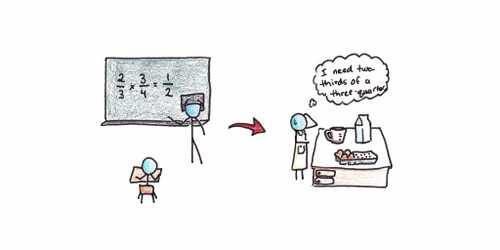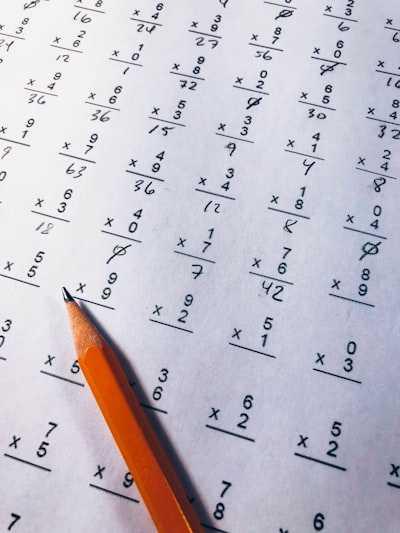Why Don't We Use the Math We Learn in School? - Scott H Young
Curated from: scotthyoung.com
Ideas, facts & insights covering these topics:
6 ideas
·998 reads
13
Explore the World's Best Ideas
Join today and uncover 100+ curated journeys from 50+ topics. Unlock access to our mobile app with extensive features.
Failure to Use Math In Everyday Life
Casual observation tells us that most people don’t use math beyond simple arithmetic in everyday life. Few people make use of fractions, trigonometry, or multi-digit division algorithms they use in school. More advanced tools like algebra or calculus are even less likely to be brought out to solve everyday problems.
14
280 reads
The Scale Of Quantitive Abilities
- Below Basic – Add up two numbers to complete an ATM deposit.
- Basic – Calculate the cost of a sandwich and salad using prices from a menu.
- Intermediate – Calculate the total cost of ordering office supplies using a page from an office supplies catalogue and an order form.
- Proficient – Calculate an employee’s share of health insurance costs for a year using a table that shows how the employee’s monthly cost varies with income and family size.
14
154 reads
Why Do People Fail to Use Math: Most People Don’t Learn Math Well Enough to Use It
The first argument would allege a failure of education. People don’t use math because they were never taught it thoroughly enough to use it properly.
A lack of automaticity may explain the difficulty people had with the quantitative questions in the survey. Their math wasn’t easily accessible, which led them to make mistakes in the reasoning tasks.
13
163 reads
Inability to Translate Real-Life Situations into Math Problems
The second argument is a little different. It argues that people may develop competence in math classes, but they struggle to translate real-life problems into a format where they can use their mathematics knowledge.
What people struggle with is not doing math, but recognizing where and how to apply math to real problems.
14
129 reads
Math Isn’t That Useful for Everyday Problems
A third explanation is that math is overrated as a solution strategy for problems outside of exacting, quantitative disciplines. The person measuring cottage cheese managed to get the correct answer without multiplying fractions.
Everyone values knowledge they have mastered and tends to dismiss knowledge they haven’t as irrelevant. There’s probably bias on both sides.
13
145 reads
Making Math More Useful
More drill and practice with math. More time spent drilling and practicing math makes it more available for effortless calculations.
More practice with interpreting problem situations. Many students are only taught math as symbol manipulation. Less instruction is focused on identifying situations where it might be useful.
Give real-life challenges that require math. Ultimately, skills and knowledge are sustained by usage. If you don’t have any genuine problems that require skill, you begin to forget them.
13
127 reads
IDEAS CURATED BY
"The greatest of follies is to sacrifice health for any other kind of happiness." - Schopenhauer
Aurora E.'s ideas are part of this journey:
Learn more about education with this collection
Cultivating a growth mindset and embracing challenges
Developing adaptive thinking and problem-solving skills
Effective learning frameworks and approaches
Related collections
Similar ideas
3 ideas
4 ideas
Why Aren't There More Apprenticeships? | Scott H Young
scotthyoung.com
4 ideas
The Science Behind Building General Skills | Scott H Young
scotthyoung.com
Read & Learn
20x Faster
without
deepstash
with
deepstash
with
deepstash
Personalized microlearning
—
100+ Learning Journeys
—
Access to 200,000+ ideas
—
Access to the mobile app
—
Unlimited idea saving
—
—
Unlimited history
—
—
Unlimited listening to ideas
—
—
Downloading & offline access
—
—
Supercharge your mind with one idea per day
Enter your email and spend 1 minute every day to learn something new.
I agree to receive email updates




